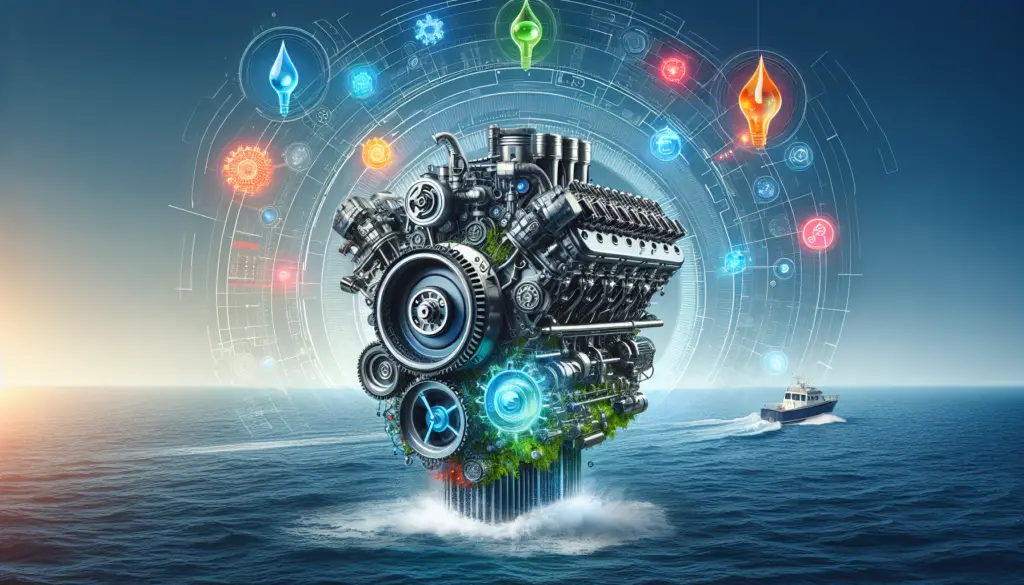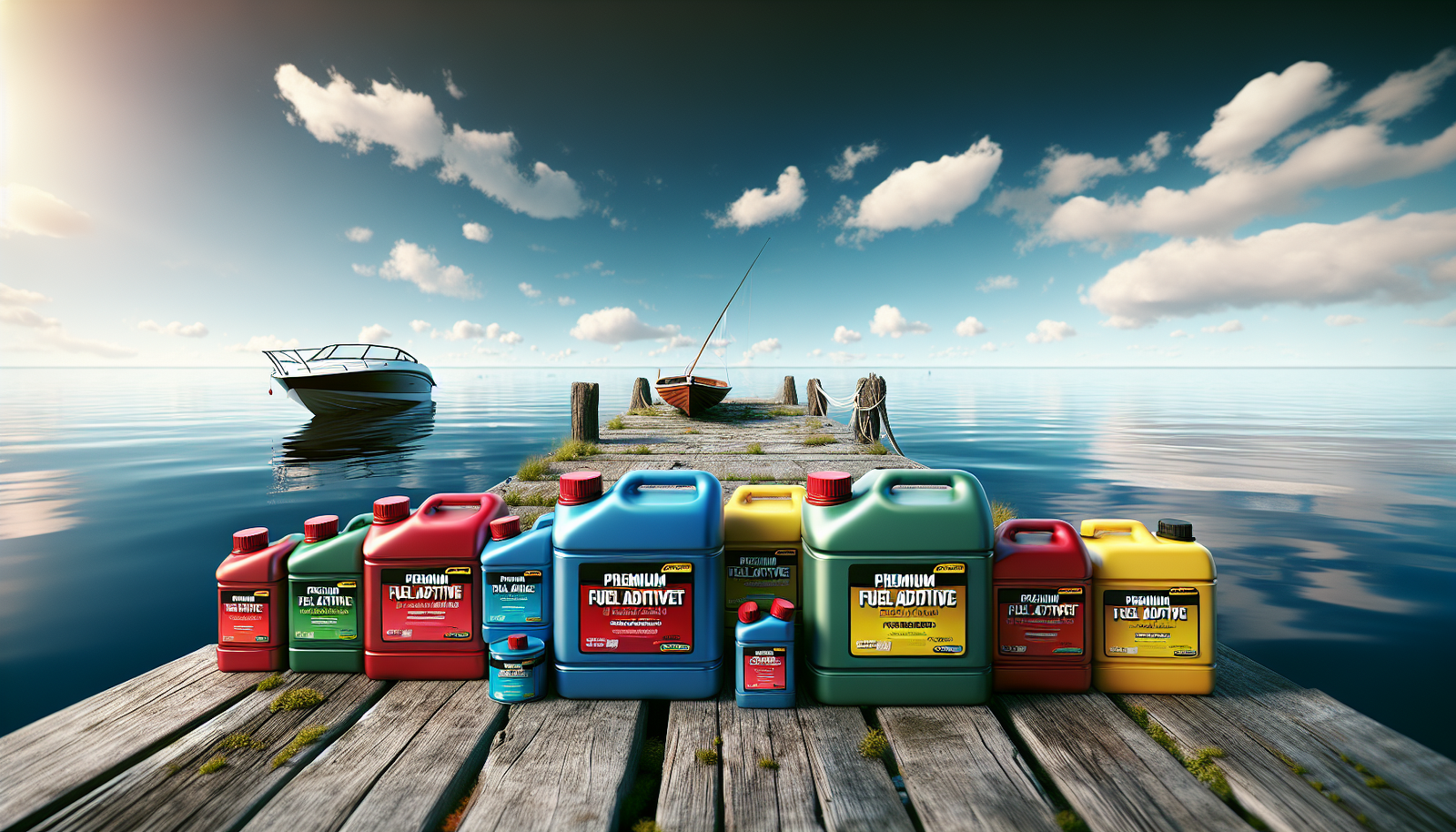Imagine you’re at the helm of your beloved boat, the salt spray in your face, the wind in your hair, when suddenly the engine starts to sputter and dies. Your day out on the water is suddenly ruined. You might be surprised to learn that inconsistent engine performance might not entirely be the engine’s fault. One significant but mostly overlooked factor can make all the difference in optimizing your boat engine’s performance: using the right fuel additives. The article, “The Best Fuel Additives For Improving Boat Engine Performance,” explores this crucial aspect by showcasing the best additives on the market today. Get ready to make your day on the water seamless and your boat’s engine healthier!
Understanding Fuel Additives
Understanding what fuel additives are, why they’re important and the types available can truly make a big difference in maintaining and improving your boat’s engine performance.
What are Fuel Additives
Fuel additives are basically chemical compounds that alter the properties and quality of fuel used in motor vehicles, which in your case would be a boat. Think of them as vitamins for your boat’s engine, helping keep it in top shape and ensuring it runs smoothly and efficiently for a longer period.
Why are Fuel Additives important for boat engines
Fuel additives play a crucial role in maintaining and enhancing the performance of a boat’s engine. They cleanse your boat’s fuel system, boost the fuel’s octane levels, minimize harmful carbon deposits and improve the overall fuel efficiency. They also protect your boat’s engine from corrosion, prevent phase separation and help in stabilizing gasoline.
Types of Fuel Additives
The different types of fuel additives include cleaners (detergent additives), stabilizers (antioxidants, metal deactivators), octane boosters, fuel injector cleaners, ethanol treatment, cetane improvers, anti-gel additives and corrosion inhibitors. Each of these serves a different purpose to help in maintaining and enhancing the overall performance of your boat engine.
How Fuel Additives Improve Boat Engine Performance
Fuel additives work in a multitude of ways to boost the performance of your boat’s engine.
Cleansing the Fuel System
Dirt and debris can build up in the fuel system over time, causing your engine to become less efficient. Fuel additives essentially clean the fuel system, washing away harmful deposits and contaminants.
Boosting Octane Levels
Some fuel additives have been designed to boost octane levels. High octane levels increase the fuel’s efficiency and reduces engine knocking, promoting a smoother and quieter operation.
Improving Fuel Efficiency
By cleaning your engine and boosting the performance factors like octane levels, fuel additives can help improve fuel efficiency. This means you use less fuel for the same output, saving you money in the long run.
Reducing Carbon Deposits
Fuel additives can control the build-up of harmful carbon deposits in your boat’s engines. These deposits can clog fuel injectors and reduce power and fuel efficiency, leading to increased emissions and potential engine damage.

Factors to Consider When Choosing Fuel Additives
There are several factors you should consider when choosing the right fuel additive for your boat.
Type of Engine
It’s crucial to understand the specifications of your particular boat’s engine. Not all fuel additives will be suitable for every engine – some are designed to work with specific types of engines.
Fuel Type
The type of fuel you use in your boat will also dictate the kind of fuel additive you should purchase. Some are specifically made for gasoline, while others are suitable for diesel or ethanol fuels.
Frequency of Use
The frequency of your boat’s use will also influence your choice. Boats that are rarely used may require fuel stabilizers to maintain the quality and efficiency of stale fuel.
Additive Formulation
It’s important to scrutinize the formulation of the fuel additive. The additive should ideally be compatible with your engine and fuel type, and must address the specific performance or maintenance issues you want to tackle.
Review of Top Fuel Additive Brands
Understanding the top fuel additive brands available in the market is essential in making an informed choice.
Lucas Marine Fuel Treatment
Lucas Marine Fuel Treatment is a powerful blend of oils and additives that contain no solvents. It is primarily designed to increase power and fuel mileage and also reduce exhaust emissions through a more complete combustion.
Star Brite Star Tron Enzyme Fuel Treatment
Star Brite Star Tron Enzyme Fuel Treatment uses enzyme technology to enhance the overall fuel economy. It helps prevent phase separation in fuel, makes engines start easily and run smooth, and keeps fuel fresh and stable.
Sea Foam Marine and RV SF-16
Sea Foam Marine and RV SF-16 is well known for its versatility and efficiency. It is a petroleum-based product that ensures cleaner internal engine components by removing harmful deposits and residues.
Sta-Bil 360 Marine
Sta-Bil 360 Marine prides itself in providing ultimate protection for your marine engines. It helps prevent corrosion from moisture and ethanol-induced water attraction, making it perfect for marine engines.
As much as these brands bring to you hood-quality fuel additives, remember that they have varying properties and one may be a better fit for your engine than others. This is where the reviews come in handy.

Lucas Marine Fuel Treatment Review
Product Overview
Lucas Marine Fuel Treatment is designed to be a multifunctional fuel additive. Boosting the power and miles per gallon for your boat, it also provides a more complete combustion which cuts down on emissions.
Pros and Cons
The upside of this additive includes its ability to burn excess exhaust emissions, enhance fuel efficiency and improve the overall boat engine power. However, the product is primarily designed for gas engines and may not have the same effect on diesel variations.
Best Suited For
This product is highly recommended for inboard and outboard gasoline engines.
Star Brite Star Tron Enzyme Fuel Treatment Review
Product Overview
Star Brite Star Tron Enzyme Fuel Treatment is a revolutionary fuel additive utilizing enzyme technology to enhance overall fuel economy.
Pros and Cons
This fuel additive has many advantages including stabilizing gas, improving fuel economy, enhancing fuel power and preventing corrosion. However, it’s relatively expensive in comparison to other similar products in the market.
Best Suited For
It’s ideally recommended for all petrol, diesel and LPG engines, and for both two and four-stroke engines.

Sea Foam Marine and RV SF-16 Review
Product Overview
Sea Foam Marine and RV SF-16 offers a unique, efficient and versatile approach to internal engine maintenance.
Pros and Cons
The benefits of this product include its ability to clean engine carburettor jets, improve power and miles per gallon, and stabilize fuel. Unfortunately, its petroleum-based composition may make it a little harsh for some modern, sensitive engines.
Best Suited For
This fuel additive is best for marine and RV engines, with either gasoline or diesel fuels.
Sta-Bil 360 Marine Review
Product Overview
This additive is well-known for providing incredible protection for your marine engines.
Pros and Cons
Sta-Bil 360 Marine is ideal for preventing rust and corrosion, and also stabilizing stored fuel. On the flip side, it does not improve fuel economy as much as other fuel additives do.
Best Suited For
Sta-Bil 360 Marine is best for all gasoline engines, including 2-cycle marine engines.

Proper Usage of Fuel Additives
Determining Correct Dosage
The correct dosage of the additive is critical to getting the desired effect. Most manufacturers indicate the right dosage on the packaging, and you’re advised to strictly adhere to these dosages.
Frequency of Use
Depending on the function of the fuel additive, it might be necessary to use the additive every time you fill up the fuel tank, or just seasonally.
Best Practices
Many manufacturers recommend using fuel additives regularly, every time you fill up your tank, while others suggest using them for every oil change. Make sure you follow the manufacturer’s instructions to get the best results.
Potential Risks and Warnings
Overuse or Wrong Use
Overusing or improperly using these additives can cause a decline in fuel economy, damage in the engine or increase in harmful emissions. Always ensure you follow the manufacturer’s instructions to the letter.
Engine Compatibility issues
Ensure the fuel additive you choose is suitable for your type of boat engine, or you could potentially cause damage.
Environmental Concerns
Some fuel additives can be harmful to the environment. It’s important to choose brands that are eco-friendly, and ensure any spillage is cleaned up promptly to avoid contamination.

